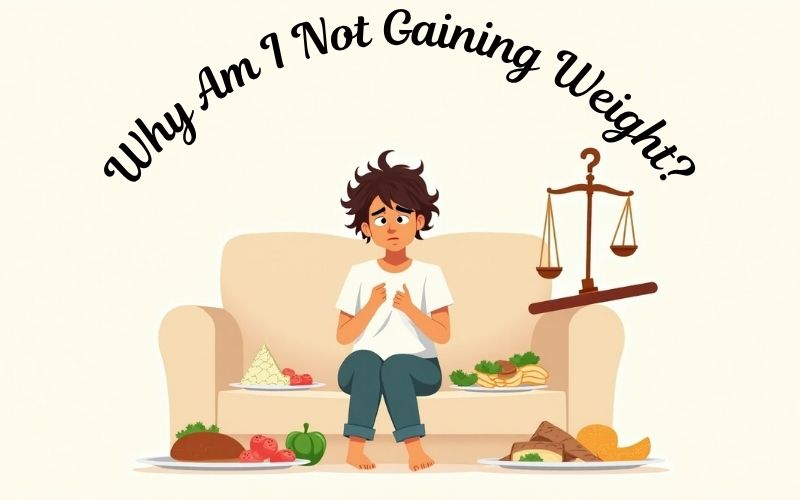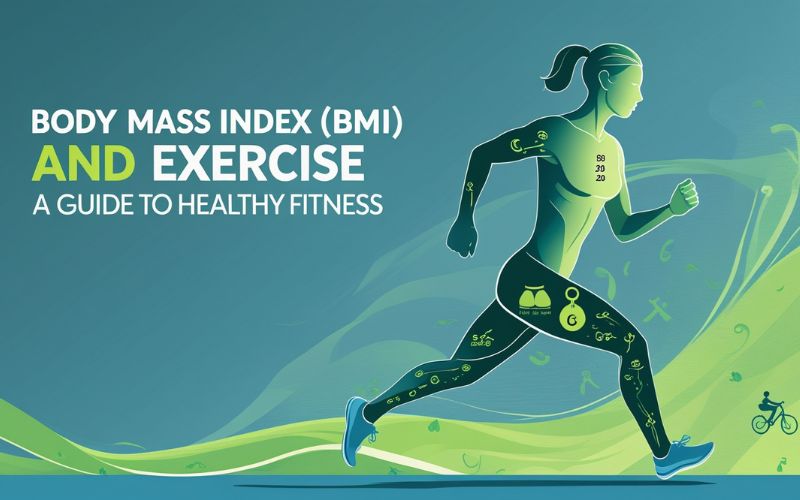Why am I not gaining weight? It’s a question that frustrates countless individuals who feel like they eat constantly, yet see no change on the scale. While the world focuses on weight loss, those trying to gain healthy weight often face silence or confusion. You might be eating more, lifting weights, and still not noticing results. Sound familiar?
This guide explores the real reasons behind why you might not be gaining weight — from hidden medical issues and poor absorption to stress and metabolism — and provides practical, expert-approved solutions to help you finally make progress.
Table of Contents
Common Reasons You’re Not Gaining Weight
Even when you think you’re doing everything right, there can be underlying factors keeping your weight stuck. Let’s break them down.
Fast Metabolism
Your basal metabolic rate (BMR) is the number of calories your body burns at rest to maintain vital functions. Some people have a genetically higher BMR, meaning they burn calories faster than others. If your body is running on overdrive, even slight increases in calorie intake may not be enough to create a surplus needed for weight gain.
Signs of a fast metabolism:
- Always feeling warm
- Frequent bowel movements
- Difficulty gaining muscle despite eating well
Inadequate Caloric Intake
One of the most common mistakes? Thinking you’re eating enough when you’re not. Gaining weight requires a caloric surplus, meaning you must eat more calories than your body burns.
Tracking your food intake for a week using an app or journal often reveals the truth: many “hard gainers” underestimate their needs. If your Total Daily Energy Expenditure (TDEE) is 2,500 calories, but you’re eating 2,400, you won’t gain weight — you’ll maintain or even lose.
Poor Nutrient Absorption
You may be eating enough — but is your body absorbing it? Conditions like:
- Irritable Bowel Syndrome (IBS)
- Inflammatory Bowel Disease (IBD)
- Celiac disease
- Chronic gut inflammation
can all impair nutrient absorption, leading to malnourishment despite high intake. Symptoms like bloating, gas, diarrhea, or undigested food in stool could point to digestive issues.
Hyperthyroidism or Medical Conditions
An overactive thyroid speeds up metabolism and can lead to unintentional weight loss. Other chronic conditions like Type 1 diabetes, cancer, or parasites may also contribute.
Signs to watch for:
- Rapid heartbeat
- Anxiety
- Sweating
- Difficulty sleeping
- Increased hunger without weight gain
A simple thyroid function test (T3, T4, TSH) can rule out hyperthyroidism.
High Physical Activity
If you’re highly active — running, lifting, walking a lot, or even doing a physically demanding job — you could be burning more than you’re eating, often without realizing it.
Athletes or fitness enthusiasts often burn through calories faster than they can replenish them.
Stress and Anxiety
Mental stress doesn’t just affect your mood — it impacts your appetite, digestion, and metabolism.
Cortisol, the stress hormone, increases catabolism, the breakdown of tissues, including muscle mass. Chronic stress also suppresses hunger and may lead to poor eating patterns or skipped meals.
Poor Sleep
Poor or inconsistent sleep disrupts two key hunger hormones: ghrelin (increases appetite) and leptin (signals fullness). Inadequate sleep can suppress appetite, impair recovery, and blunt muscle gain, even if you’re working out and eating well.
Hidden Habits That Sabotage Weight Gain
Some everyday routines might unknowingly be blocking your progress.
- Skipping meals: Missing breakfast or lunch? That’s 500–800 calories gone.
- Excessive cardio: Long runs or HIIT sessions can cancel out your caloric surplus.
- Junk food reliance: While calorie-dense, processed food lacks the nutrients needed to build quality muscle and tissues.
- Not tracking intake: Guessing isn’t enough. Use apps like MyFitnessPal to log calories and macros.
How to Identify the Root Cause
If you’ve tried gaining weight with no success, it’s time to investigate further.
- Track for one week: Record everything — food, activity, sleep, stress levels.
- Get lab tests done: Ask for:
- Thyroid panel (T3, T4, TSH)
- Blood sugar levels
- Vitamin B12, iron, and D levels
- Celiac antibodies
- Gut microbiome analysis (if possible)
- Consult a specialist: A registered dietitian or functional medicine doctor can help uncover hidden imbalances.
Proven Solutions to Start Gaining Weight
Eat Calorie-Dense Whole Foods
Focus on nutrient-rich, high-calorie foods:
- Healthy fats: Ghee, nut butters, olive oil, seeds
- Complex carbs: Rice, oats, sweet potatoes, bananas
- Protein sources: Eggs, chicken, lentils, paneer
- Weight gain smoothies: Milk + oats + peanut butter + banana
Tip: Eat 5–6 meals per day instead of 3. Add snacks like trail mix, protein bars, and full-fat yogurt between meals.
Strength Training Over Cardio
Muscle weighs more than fat. Prioritize resistance training (compound lifts like squats, deadlifts, bench press) to stimulate muscle growth.
- Limit cardio to 2–3 short sessions/week
- Focus on progressive overload and compound movements
- Rest well between sessions
Supplement Smartly
While whole food should be your base, these supplements support weight gain:
- Whey Protein: Boosts calorie and protein intake post-workout
- Ashwagandha: Reduces stress and supports muscle gain (shown in studies)
- Probiotics: Improve gut health and nutrient absorption
- Creatine: Supports lean mass gain and strength
Always check with a healthcare provider before starting any supplement.
Improve Sleep & Reduce Stress
- Get 7–9 hours of quality sleep
- Try guided meditation, yoga nidra, or adaptogens like Brahmi
- Reduce screen time before bed
- Keep a consistent sleep-wake schedule
Work With a Nutritionist
If nothing else works, don’t go it alone. A qualified dietitian can:
- Design a tailored meal plan
- Monitor your progress
- Adjust macros as needed
- Recommend further lab testing if required
When to See a Doctor or Dietitian
Don’t ignore these signs:
- Losing weight despite eating well
- Digestive discomfort after meals
- Unexplained fatigue
- Hair thinning or brittle nails
- Irregular menstrual cycle (in women)
These could point to thyroid dysfunction, malabsorption, or nutritional deficiencies — all treatable when caught early.
Conclusion
So, why am I not gaining weight? The answer could be anywhere between a fast metabolism, poor nutrient absorption, chronic stress, or hidden medical conditions. The good news? Every cause has a solution — and most are reversible with the right guidance.
Don’t give up hope. Instead, track your intake, lift smart, sleep well, and seek professional help when needed. Weight gain isn’t just about eating more — it’s about eating right, at the right time, for your unique body.
FAQs
Is it unhealthy if I can’t gain weight?
Not always. But if your low weight is accompanied by fatigue, illness, or hormonal imbalances, it may signal an underlying issue.
Can stress prevent me from gaining weight?
Yes. Chronic stress raises cortisol, which suppresses appetite and increases catabolism, making it harder to gain weight.
Why am I not gaining weight despite eating a lot?
You might be underestimating your calorie needs, have a fast metabolism, or be experiencing poor absorption due to gut or hormonal issues.


























